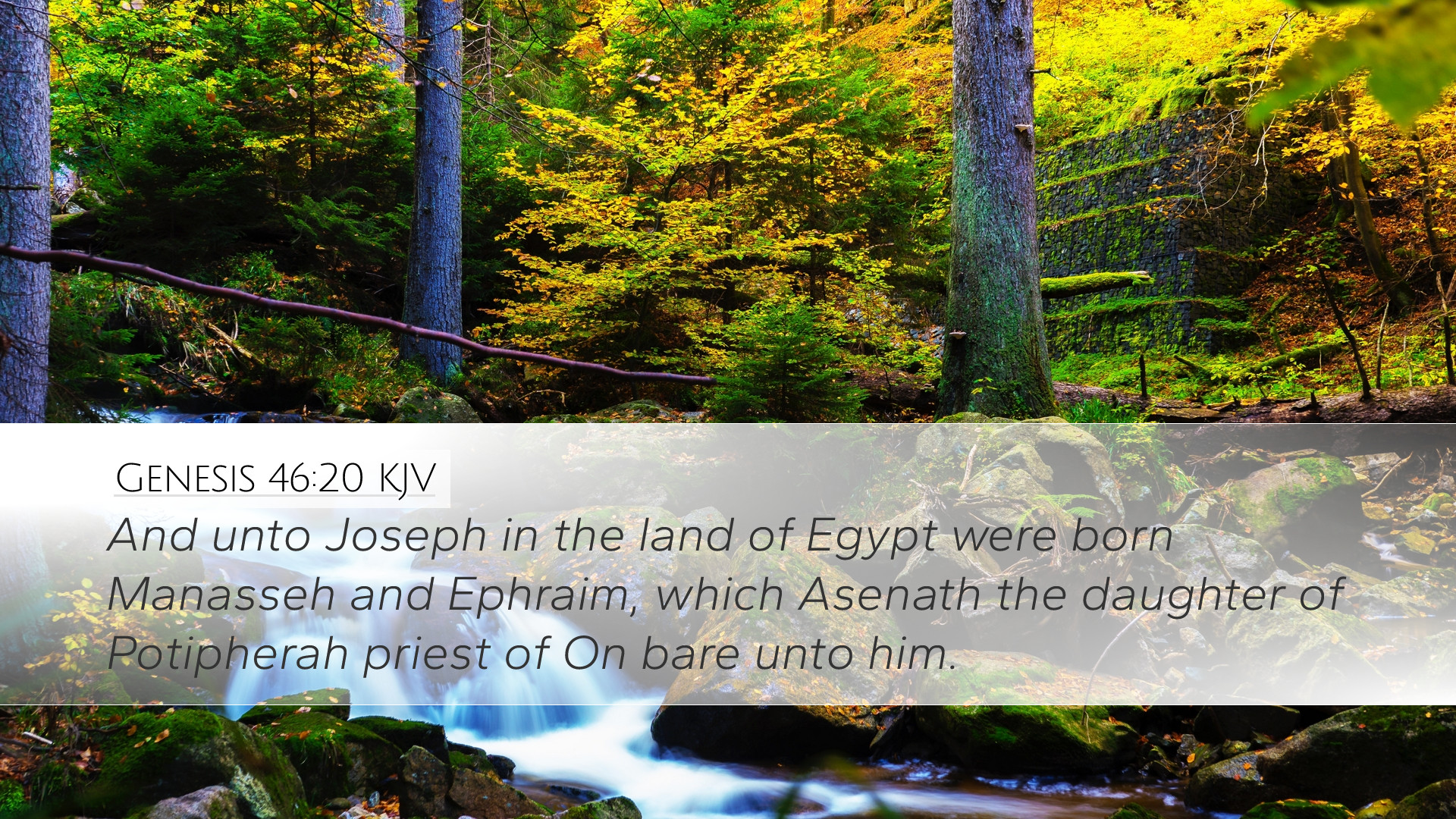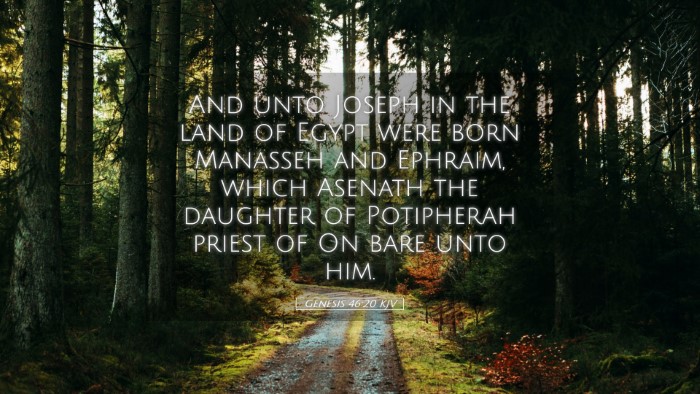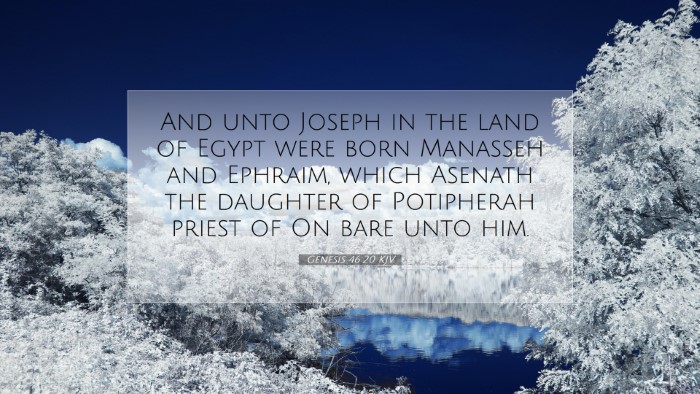Commentary on Genesis 46:20
Genesis 46:20: "And unto Joseph in the land of Egypt were born Manasseh and Ephraim, which Asenath the daughter of Potipherah priest of On bare unto him."
Introduction
The verse under consideration provides significant insight into the family dynamics of Joseph and the early formation of the tribes of Israel. Joseph's marriage to Asenath, the daughter of Potipherah, and the birth of his two sons, Manasseh and Ephraim, mark pivotal historical and theological aspects of Israel's story.
Theological Significance
Matthew Henry emphasizes the divine purpose in the birth of these sons, highlighting that they were born in the land of Egypt yet intended to play a significant role in the future of Israel.
Albert Barnes notes the importance of naming, indicating that Manasseh means "For God has made me forget all my toil," which illustrates Joseph's transition from a life of hardship to one of prosperity. Ephraim signifies "For God has caused me to be fruitful in the land of my affliction," pointing out the providential hand of God in Joseph's life and the blessings received despite suffering.
Adam Clarke adds that this indicates a transition towards hope for the Israelites, as Joseph's blessings in Egypt suggest divine favor during a time of great need.
Joseph's Sons: Symbolism and Names
- Manasseh: His name reflects the duality of forgetfulness and remembrance. As Joseph forgets his past sufferings, he embodies the hope of redemption. This can be seen as a foreshadowing of Israel's own journey from slavery and suffering to freedom.
- Ephraim: The name symbolizes fruitfulness and God's abundant blessings. This is particularly significant as it promises growth and continuity for the Israelites through the emerging tribes.
Cultural Context and Family Dynamics
Henry suggests that Joseph's union with Asenath reflects significant cultural interactions in Egypt, as well as the broader narrative of God's plan to preserve Israel. The marriage signifies the blending of cultural heritage while maintaining Joseph's identity and faith in God.
Barnes further details that the priestly background of Asenath's father may have had theological implications, suggesting a potential fostering of connections between the Israelites and the Egyptians, thereby facilitating future interactions.
Lessons for Pastors and Theologians
- Diversifying Ministry: The narrative demonstrates the importance of engaging with diverse cultures while holding onto one's spiritual identity. This serves as a reflection for modern ministry in multicultural contexts.
- Divine Providence: The emphasis on God's providential care in Joseph's life serves as an assurance for current believers facing difficulties, illustrating that God can bring about good even amid challenges.
- Identity and Legacy: The naming of Joseph's sons can prompt reflection on the legacy leaders leave behind and how they foster future generations in faith.
Conclusion
Genesis 46:20 offers rich theological and practical insights into God's sovereignty, human identity amid cultural challenges, and the ways in which God prepares His people for future roles in His redemptive history. The names of Joseph's sons serve as enduring reminders of God's faithfulness and blessing, both for Joseph and for Israel. Through the lens of Joseph's experiences and the extension of his family, leaders today are encouraged to embrace diversity while anchoring their identity in God, nurturing future generations to carry forth their faith amidst adversity.


